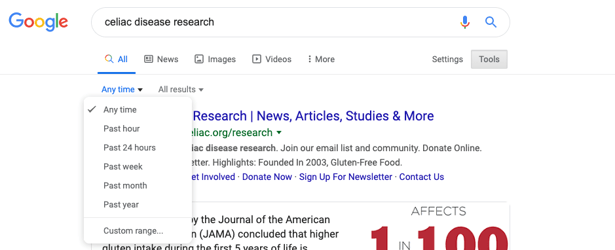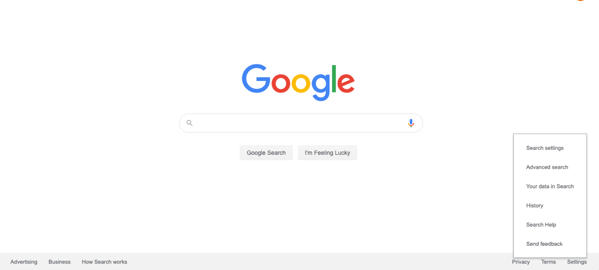
Sep 27, 2019
Blog Market Research How to Improve Web Searches with Google and Other Search Engines Pt. 1
There’s nothing more frustrating than spending time doing a web search that yields less than desirable results, let alone the exact information you were hoping to find.
This is especially true for life science entrepreneurs, researchers and other professionals who need to find critical information quickly and easily—so that they can make decisions in their business, refine their product, update themselves on changes in the field and more.
At Informing Innovation 2019, Research Associate Allison Cruise and Web Administrator Matt Zimo from the North Carolina Biotechnology Center, shared their favorite hints and tips for fine tuning web searches on two platforms that life science professionals use most often: Google and PubMed.
Check out their tips below. You can implement them into your own web search strategy immediately.
How Do Boolean Operators Work?
Cruise and Zimo remind life science professionals what the following Boolean search terms mean and how they work—so that they use them properly to improve their search results.
Google Tools That Can Help You
Since Google is designed to generate by default the most relevant results based on your search terms—even if you refine your search with quotation markets—it’s helpful to employ other tools offered by Google to find the information you need.



Stay tuned for Part 2 of this blog, where we’ll list the rest of the tips recommended by Cruise and Zimo on how life science professionals can fine tune their web searches.

Sarah Greenberg is the Manager of Content Marketing at BCC Research. She creates our blog, social media and email content.

Amending the Pesticide Trade Business China and the U.S. are the foremost export...

Introduction The electric vehicle (EV) revolution is not solely about batteries ...

In the ever-evolving landscape of technology, pressure sensors have emerged as p...

We are your trusted research partner, providing actionable insights and custom consulting across life sciences, advanced materials, and technology. Allow BCC Research to nurture your smartest business decisions today, tomorrow, and beyond.
Contact UsBCC Research provides objective, unbiased measurement and assessment of market opportunities with detailed market research reports. Our experienced industry analysts assess growth opportunities, market sizing, technologies, applications, supply chains and companies with the singular goal of helping you make informed business decisions, free of noise and hype.